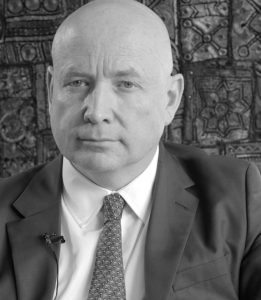Building trust to change lives
11 December 2020

The penultimate breakfast webinar in our series looking at design principles for integrated care was the best attended so far, with more than 90 people joining Wednesday’s session.
Our theme this week was the purpose and scope of strong provider boards in making ICSs succeed. The session was chaired with great skill and even-handedness by Jacqui Smith, chair of University Hospitals Birmingham NHS Foundation Trust, and the conversation was opened by Beatrice Fraenkel, chair of Mersey Care NHS Foundation Trust, with contributions from Lawrence Fallon, Deputy Chief Executive of Guy’s and St Thomas’s NHS Foundation Trust, and Jeremy Vanes, the chair of Black Country Healthcare NHS Foundation Trust.
Beatrice set the scene clearly and well with her overview of the local and legislative context for the changes ahead and set out some guiding principles about the way we should be thinking about the move to a system-based approach. As she said: “We’re not just entering into unknown territory, we’re also unsure about the form the legislation will take around the new organisations.”

Although Simon Stevens has described this imminent legislation as a ribbon to tie up what will already be in place, most of us understand that there’s a huge amount of work ahead to build the necessary partnerships and structures.
It’s complex and challenging work but, as Beatrice said, it’s also a huge opportunity to reduce health inequalities and improve outcomes for the communities we serve.
The first step, she said, was to build the relationships on which the new integrated services will depend.
The discussion that followed was as rich and varied as we've seen in any of the webinars in this series. As ever, there were a number of threads in the chat in particular that might benefit from being allowed to grow and develop in their own dedicated sessions – we’ll be exploring that.
Amid the chorus of agreement about the importance of building trust and forging new relationships, several guests also stressed how crucial it is to listen to the communities we all serve to ensure our understanding of the issues they face is accurate. One guest spoke of the extra multi-lingual engagement staff their trust had recruited to help with this process.
There was also broad agreement about the principle of learning more about the issues facing potential partner organisations. One guest said: “We’ve always operated in siloes. The thought of attending the board meetings of other partners starts off as entirely foreign. But attending other organisations’ board meetings is a good start in building understanding and empathy.”
Another guest wrote in the chat: “There is a danger here that the NHS organisations jockey for position on leadership and 'anchorage' within ICSs that they are then blinkered to cross-sector integration i.e. with local authorities. Vertical integration across the NHS needs to be equitable with a focus on horizontal integration with LAs, the voluntary sector etc. The NHS role is probably more around population ill health rather than the holistic role that, for examples, adult social care and housing take in the role of healthy living and wellbeing.
“The paper is almost silent on the role of local public health and their work with regard local population health and needs analysis etc. There are already statutory partnerships - health and wellbeing boards for example, that much of the partnership working could be driven through. Establishing what is done at ICS level and what is devolved to place will help assess whether those structures can stand the test or whether more is required.”
Underpinning many of the comments was a concern that collectively we don’t miss the opportunities offered by the impending changes. It’s not just about how the NHS is organised, who holds the power or how we pay for services. We also have a chance to transform the way we treat our voluntary sector, to improve our performance on equality and diversity and to address once again the thorny dilemma of shifting the balance of resource allocation away from urgent short-term measures towards less pressing longer-term initiatives that might not result in quick improvements but which will ultimately make a bigger difference to the lives of the people we serve.
As Beatrice said, none of this is easy and none of it is comfortable. But the time has finally arrived to translate talk into action. And that’s a prospect that should excite all of us.
On Wednesday 16 December we will close our series with a webinar that explores the role of non-executive directors in the development of ICSs and ICPs. There’s still time to register for your place if you’d like to join the conversation. You’ll find the joining details on our website.
A personal blog by Andrew Corbett-Nolan, Chief Executive, GGI
